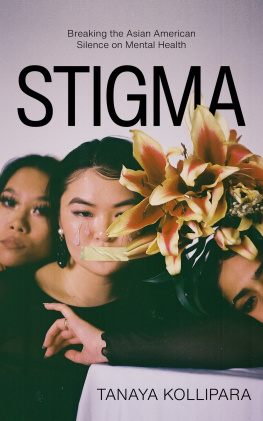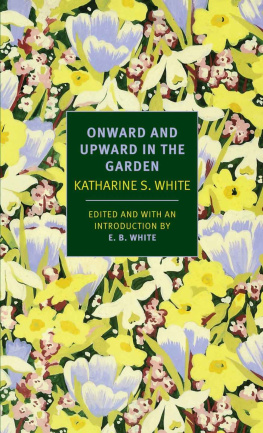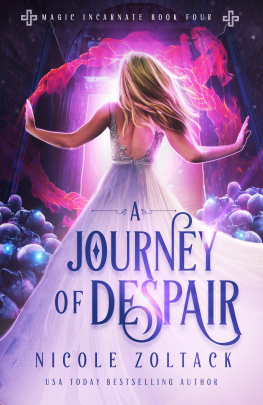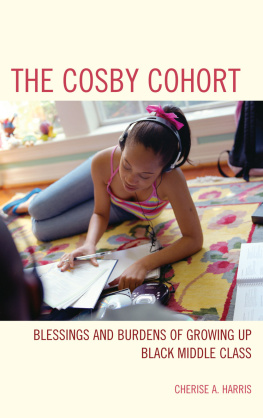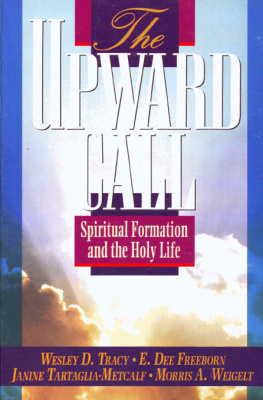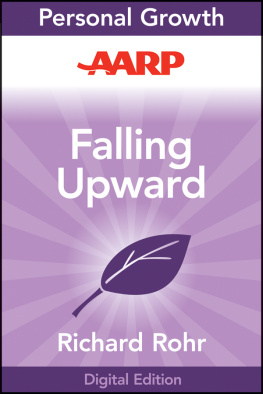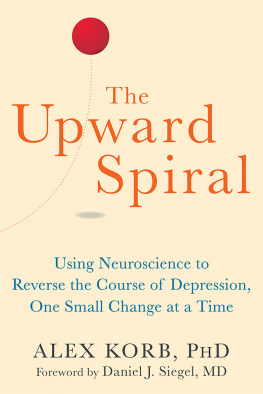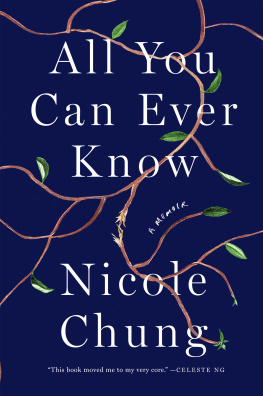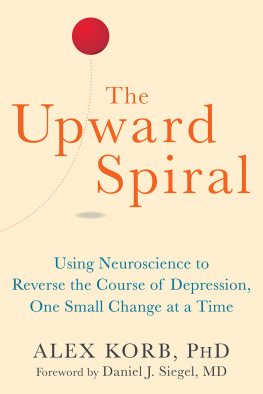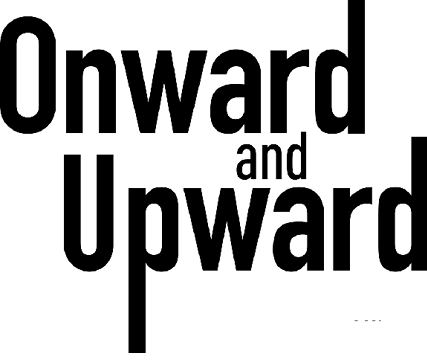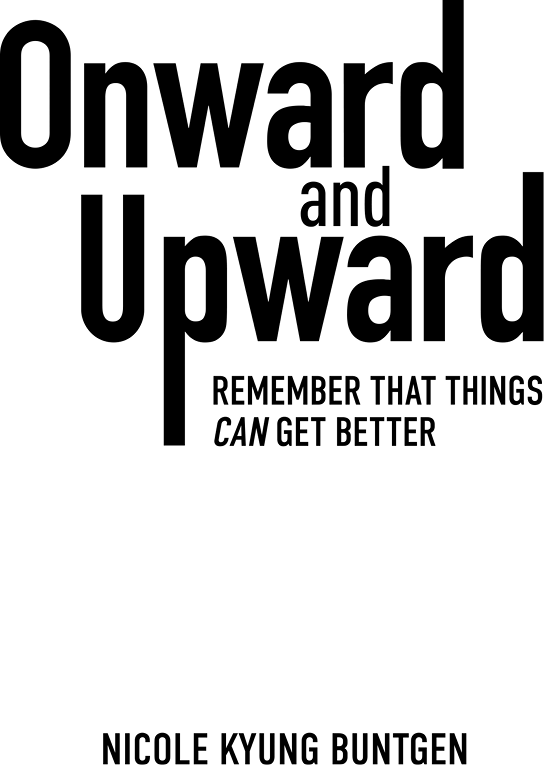Since second grade , Ive always had a knack for writinganything that sparked creativity ignited a passion inside of me. That passion kickstarted the creation of this book. After my twenty-third birthday, I vowed I would become a published author by the age of twenty-four.
Six months later, I realized that was never going to happen.
So I made it happen in twelve.
People always ask why I decided to write a book, why I chose my topics, and why I wanted to write about myself. Theyre all great questions, and I always answer with the same response:
A change of environment brought me closer to like-minded people and inspired me to say, Hey, I should write a book.
Growth can be an evolving journey, as it has been in my life. Between being adopted, facing ignorance, and processing my various mental health labels, I have wandered through life and always asked myself, Whats next?
Im here to tell you my story from my perspective and reflect on important aspects of my life. Im taking you on a journey, and its my goal to help you feel empowered. I hope you find this book to be an outlet for yourself.
Onward and Upward.
Closed Out of Her Life
So, whats an Asian girl doing in Nebraska?
This was what one of the guys running our private parasail flight said to me. I was fourteen years old at the time, with my nineteen-year-old sister, Rebecca. We were in Honolulu, Hawaii, on what Id say was our most memorable vacation ever with the captivating ocean surrounding us. Rebecca and I were getting hooked up to the ride when one of the workers began making conversation.
The where are you from? question always trips me up. Its a vague inquiry that I never know how to properly answer: do I say Im from David Citymy hometown and the place where I grew up? Do I say South Koreathe place where I was born? Do I overgeneralize and say Asiaseeing as some people Ive run into unfortunately dont know the most simplistic answer to such a complex question?
I dont think people understand how difficult it is to answer a question like that because they dont think twice about all the different answers that run through my mind.
After my sister stated we were from Nebraska, the question of my race immediately came into play. I wasnt offended or surprised by thisI actually thought it was funny. Its not uncommon for people to question what relation I have to my family, given we are two different races: my family is white, and I am Asian. I suppose when people visualize a family, they imagine all members looking alike. Families come in all shapes and sizes and shouldnt be defined by blood relations; however, I understand this isnt the first thought most people have when the topic is being discussed. As Ive grown older, the skepticism surrounding the association I have with my family has dwindledpeople are now surprised to discover my family is not Asian like me. Looking back on the situation now helps me realize these comments are more about a lack of diversity than about me as a person.
I grew up in David City, NE: a town with the word city in its name but hosting a population of fewer than three thousand people. When I lived there, the demographics consisted of about five total Asiansmyself included. All of us were adopted, so the concept of us being brought up by white families wasnt anything out-of-the-ordinary. Although Ive never looked at my family as white, I began to realize other people saw this difference once I grew up and moved away. After I graduated from high school and moved to a bigger city for college, I found myself forgetting that people didnt realize I was adopted. Whenever I made new friends, they would ask to see pictures of my family, and they were surprised to learn my family is white. At no time up to that point had this racial differentiation occurred to me, and its something I never thought I would have to explain to people.
I attended college in Lincoln and later moved to Omaha: the two largest cities in Nebraska. Within these metros, I have met many Asian-Americans who are not adopted and were raised by Asian families. Some of them stay true to their heritage and carry cultural customs through their lives: they speak their native languages or bask in authentic Asian cuisine. Meeting these types of Asians has always fascinated me because it allows me to gain perspective on what its like to grow up in an Asian household. I didnt grow up eating bulgogi, kimchi, and rice; I ate hot dogs, chicken strips, and hamburgers. I didnt grow up practicing Buddhism or worshiping my ancestors; I attended the Methodist church in David City and went to Sunday School. I have always been branded as the whitest Asian people know, and Ive never truly felt like I belong in either the Asian or white community. I am an Asian who was raised in a white household. For me, thats all I knowhow was I supposed to know any better?
You dont like fish? You dont know how to use chopsticks? Youre Asian, for Gods sake!
As if I didnt already feel like an outcast, comments like these still bother me to this day, and its difficult to pretend they dont. Just because I am Asian doesnt mean I automatically fall under typical Asian stereotypes. I am no less of an Asian than the one standing next to me. Although my upbringing, practices, and norms do not align with kids raised by Asian parents, that doesnt mean we all fall under the same category and must enjoy, act, and live life the same way.
I used to be very insecure about my race and grew irritated by the constant stares and double-takes I would receive when out with my family in public. Sometimes people would even go as far as questioning if Im really related to my family. One time in middle school, a classmate inquired about my real parents versus my white ones. I didnt even know how to respond.
Another time in middle school, I was called yellow skin by an older student. That day, I went home and jumped on our desktop computer and searched for skin-lightening creams to hide the so-called yellow tones my Asian skin gave off. When I used to take studio dance classes, I had a girl inform me my eyes looked weird. I went home in tears that day and hopped back on our computer to research how much surgery would cost so my eyes could look less Asian. Although there were a few other Asians in town I could confide in, none of us were particularly close. While most people didnt see me as Nicole the Asian, I did. I grew ashamed of my race and frequently scoured the internet for different ways I could hide my Asian identity. I couldnt stand being seen as an outcastall I wanted was to fit in.


